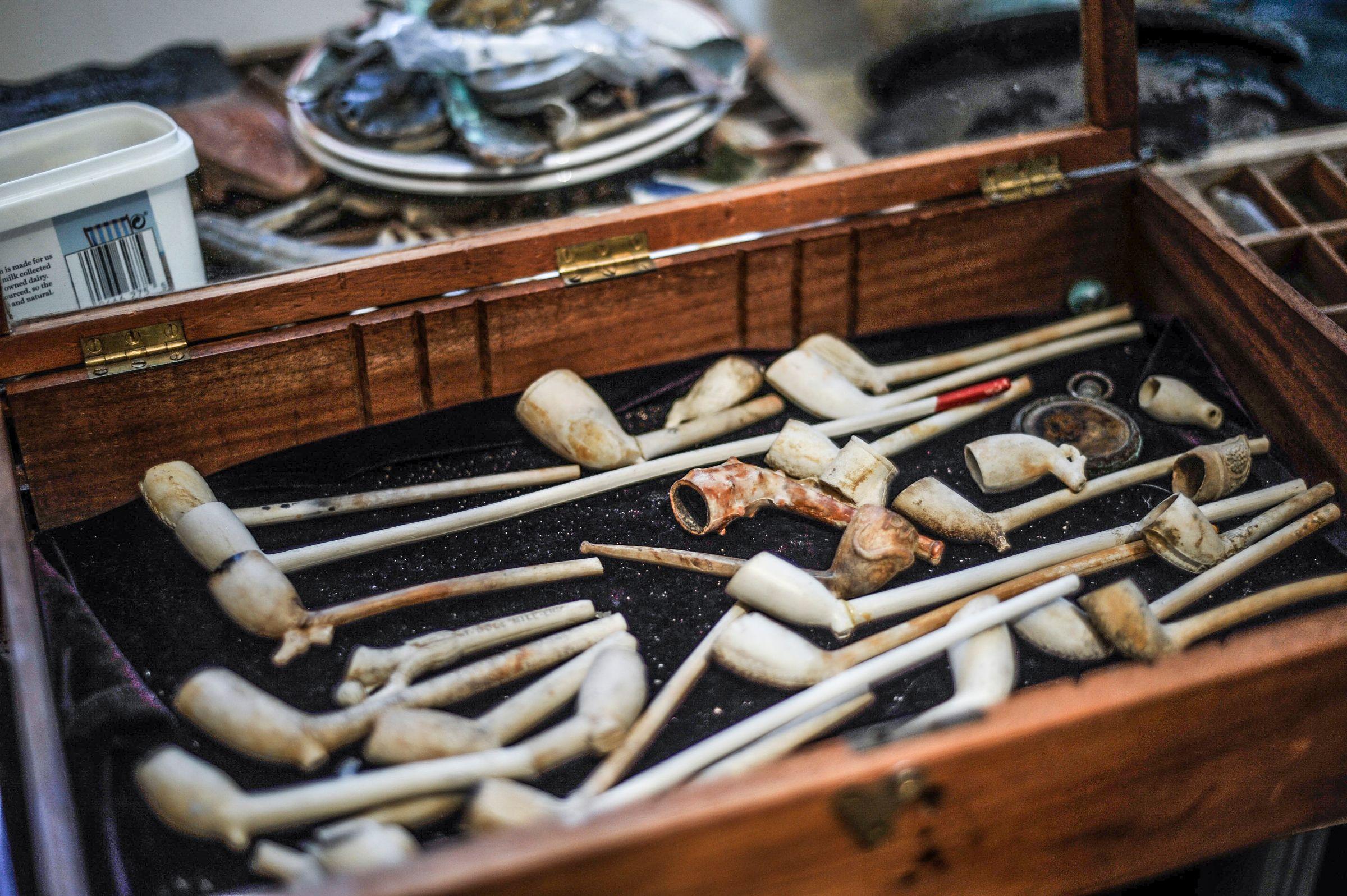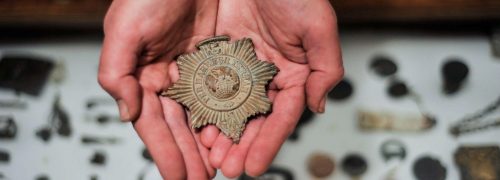
People
What the river found: an interview with mudlark Nicola White
With sharp eyes and a low tide, you can find objects washed up the Thames that hint at every layer of London’s two thousand years of history.
But to mudlark Nicola White, these are more than just artefacts. Each clay pipe and every discarded luggage tag is a clue capable of unravelling an entire life. Discoveries have taken her to the graves of long-dead soldiers and led to her to post a Power Ranger outfit to a boy who sent out his wish in a bottle.
Nicola’s regular haunt is the stretch of Thames that defines the Royal Docks’ southern edge. She showed us around her studio and shared a few pieces from the thousands in her collection.
What sort of things do you expect on an average day on the river bank?
I do a lot of mudlarking down in south-east London. There’s a lot of military history around the area, so there’s military buttons, medals, spent ammunition from varying eras, clay pipes — I love those, I never get fed up with those. They often have the maker’s name on the side of the stem so you can look up the family and find out about them. It brings that person and that family back to life again.
One of my favourite finds is a little brass luggage tag that has a name and an address on it. It’s Fred Jury, 72 Woolwich Road. And I was able to look him up and was found out that he was a WW1 soldier. He travelled over to Australia when he was about 43 and joined the Australian Imperial Force in 1916 and went to the trenches in Europe. He lost several fingers, he was hit by a grenade, and then he came back, married his landlady, and they lived in Woolwich for the rest of his life. He died when he was about 60 and he’s buried in Eltham Cemetery, so I went to find his grave. That was amazing because it was just this one piece of metal and it had brought this person back again.
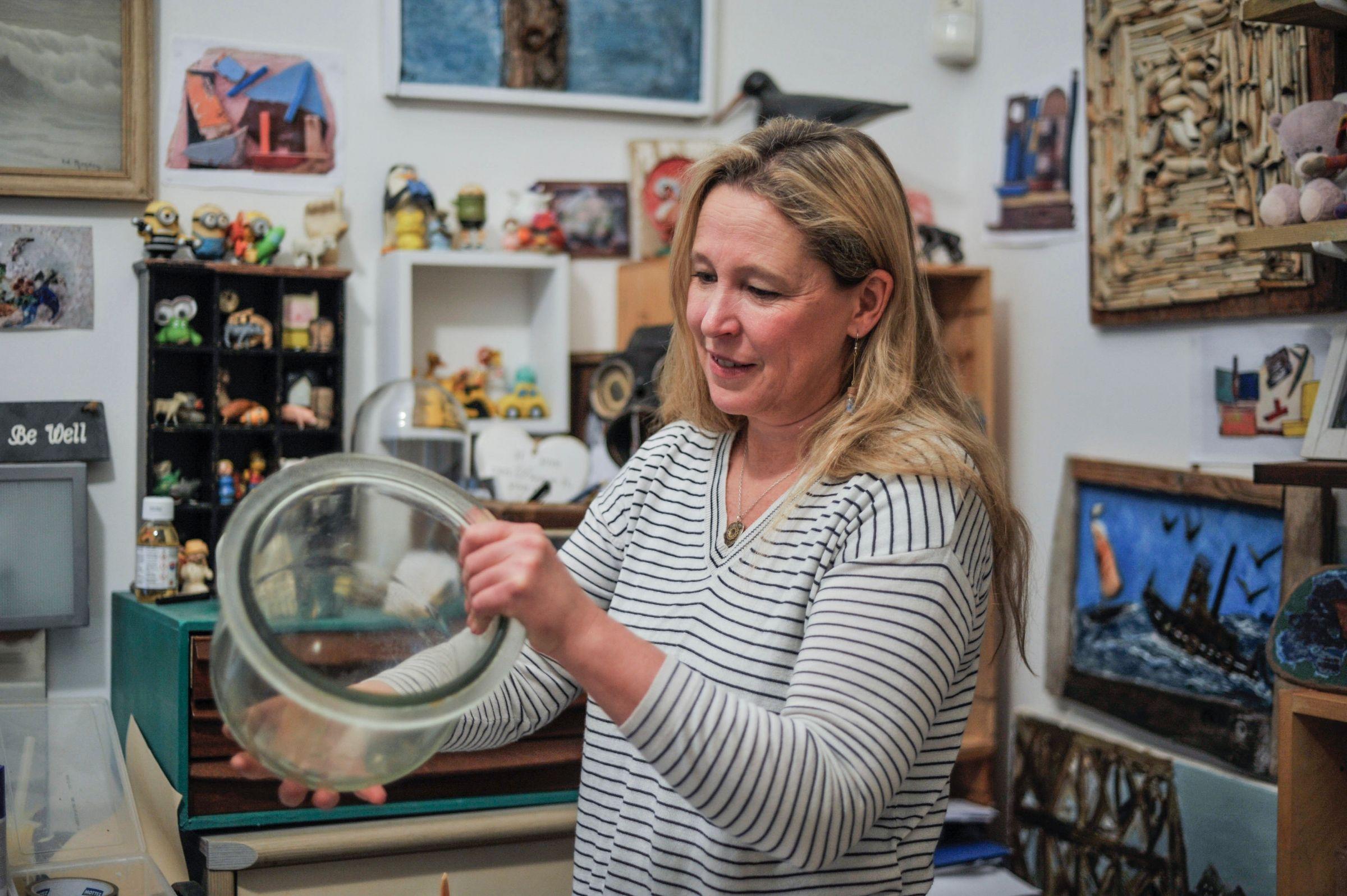
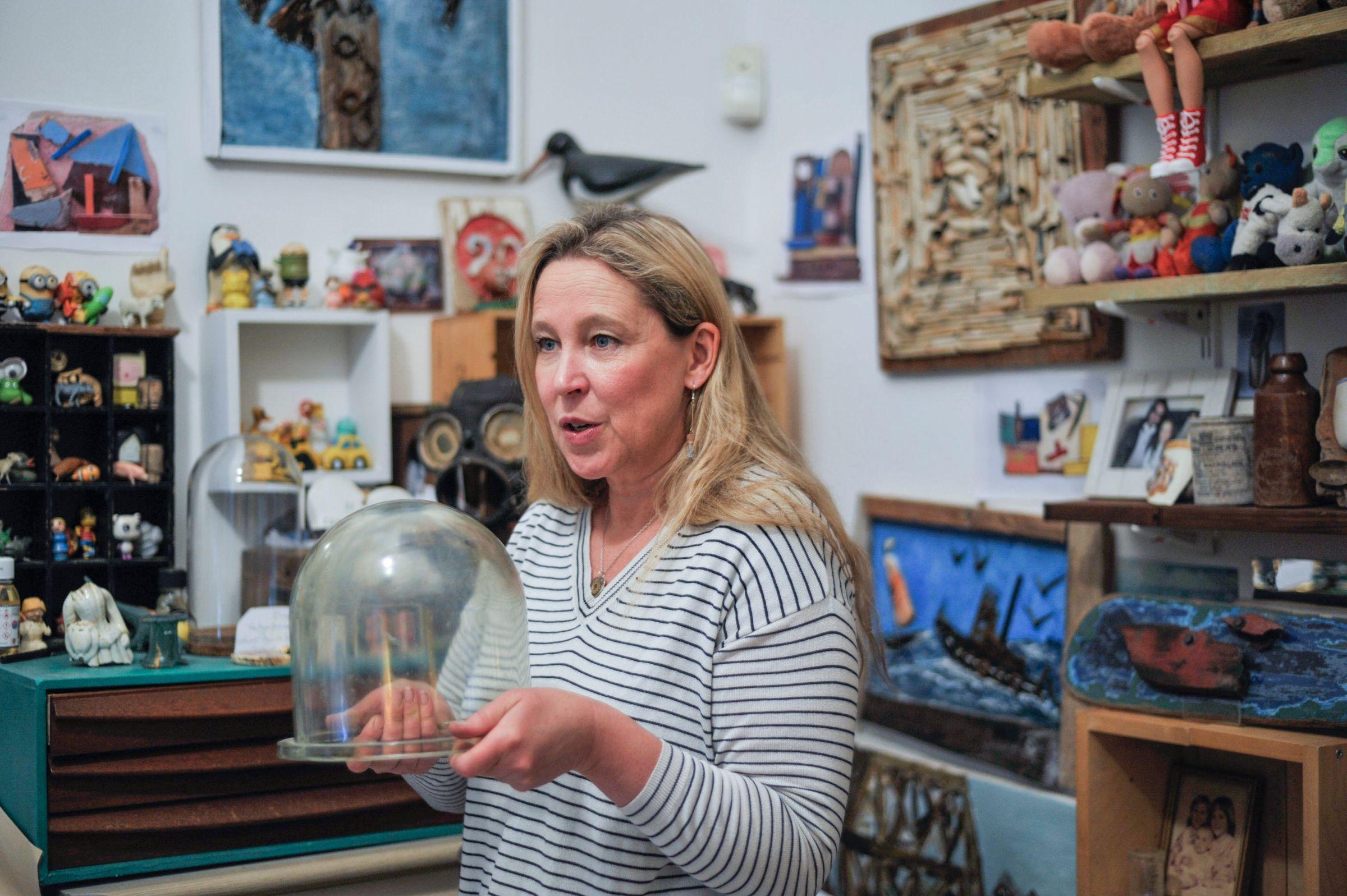
Nicola White
Nicola's studio is a trove of curiosities salvaged from the river.
That’s the lovely thing about artefacts like that.
It never fails to amaze me. I feel sometimes that [the objects] want to be found so that the stories can be told.
What have you found in the Royal Docks?
I was there not that long ago and I found a very big glass dome.
Maybe part of a ship?
That's right. I also found a nice little plaque that mentioned Silvertown on it not that long ago. Here we are, let's see… “The India Rubber Works, Silvertown.” There's just all manner of things. I'm actually going to the Museum of London this afternoon with some of my finds because you need to declare them.
Do you declare everything?
It's items of historical interest, which are over 300 years old, or treasure. I've just got a few particularly old things on this occasion: a ring that possibly dates back to the Roman era and a Roman ear scoop. They would use it to scoop the ear wax out.
That's quite disgusting.
Yes, isn't it? I've got some little Tudor bone game pieces, and quite a lot of Roman pottery. The Thames has been used as a rubbish bin since London began, so we're finding things that people threw away or lost. Not like the old mudlarks, of course, who were the poorest of the poor in society — old women and young children wandering around at low tide with mud up to their knees. We're fortunate: we've got boots, we've got tide apps, and we go down there and we're looking for these pieces of history.
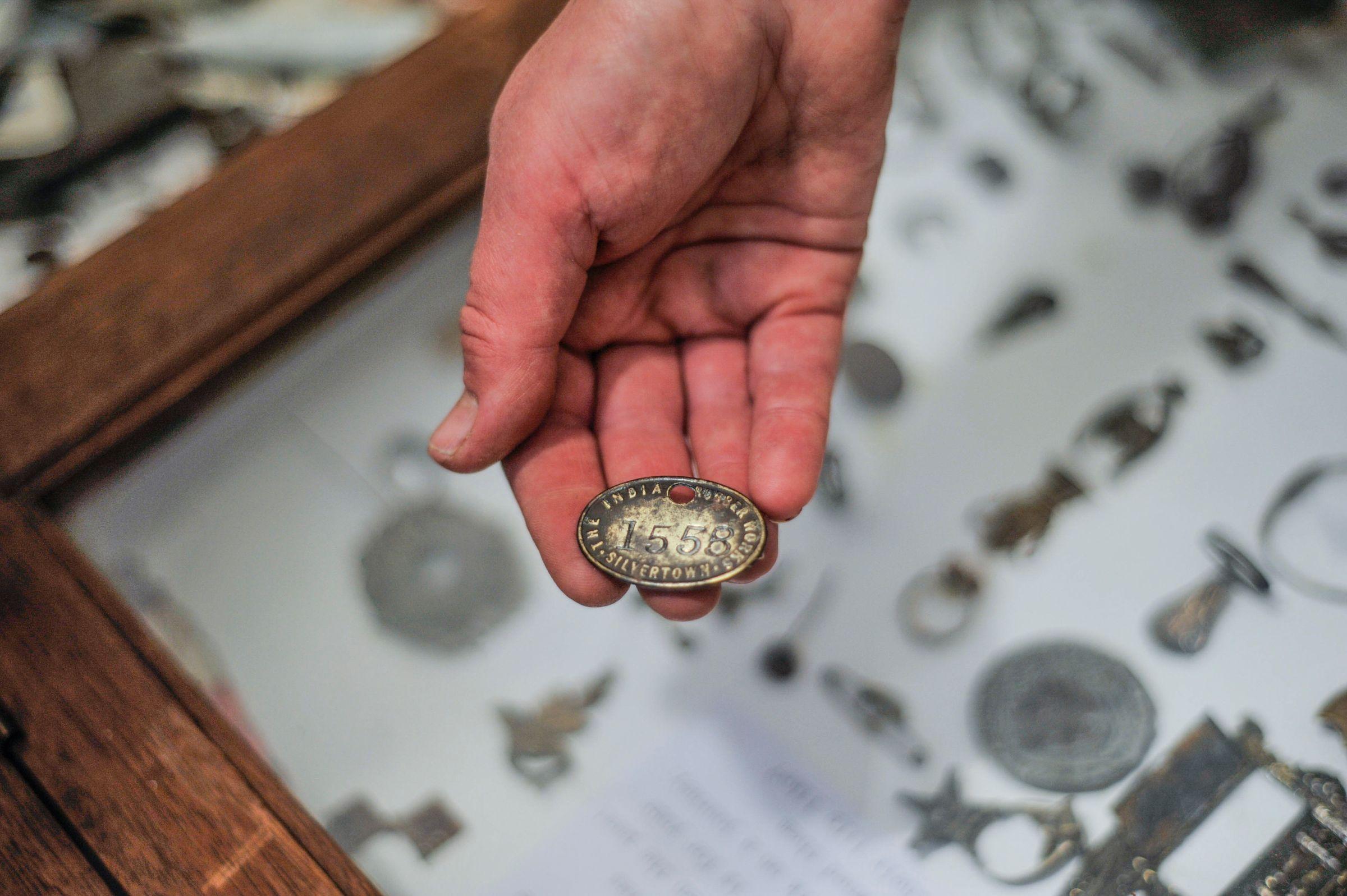
A Royal Docks find
This tag reads, "The India Rubber Works Silvertown."
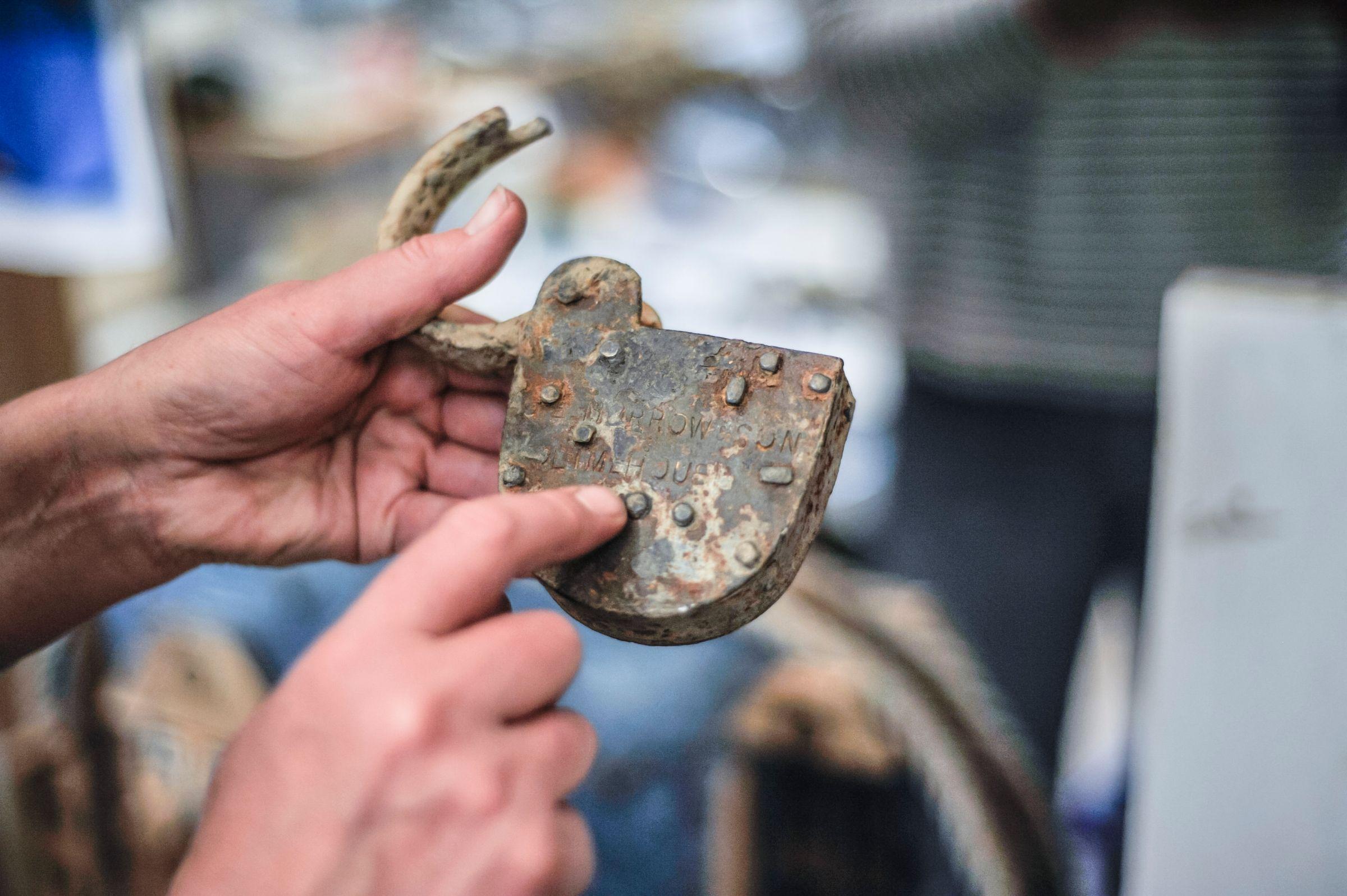
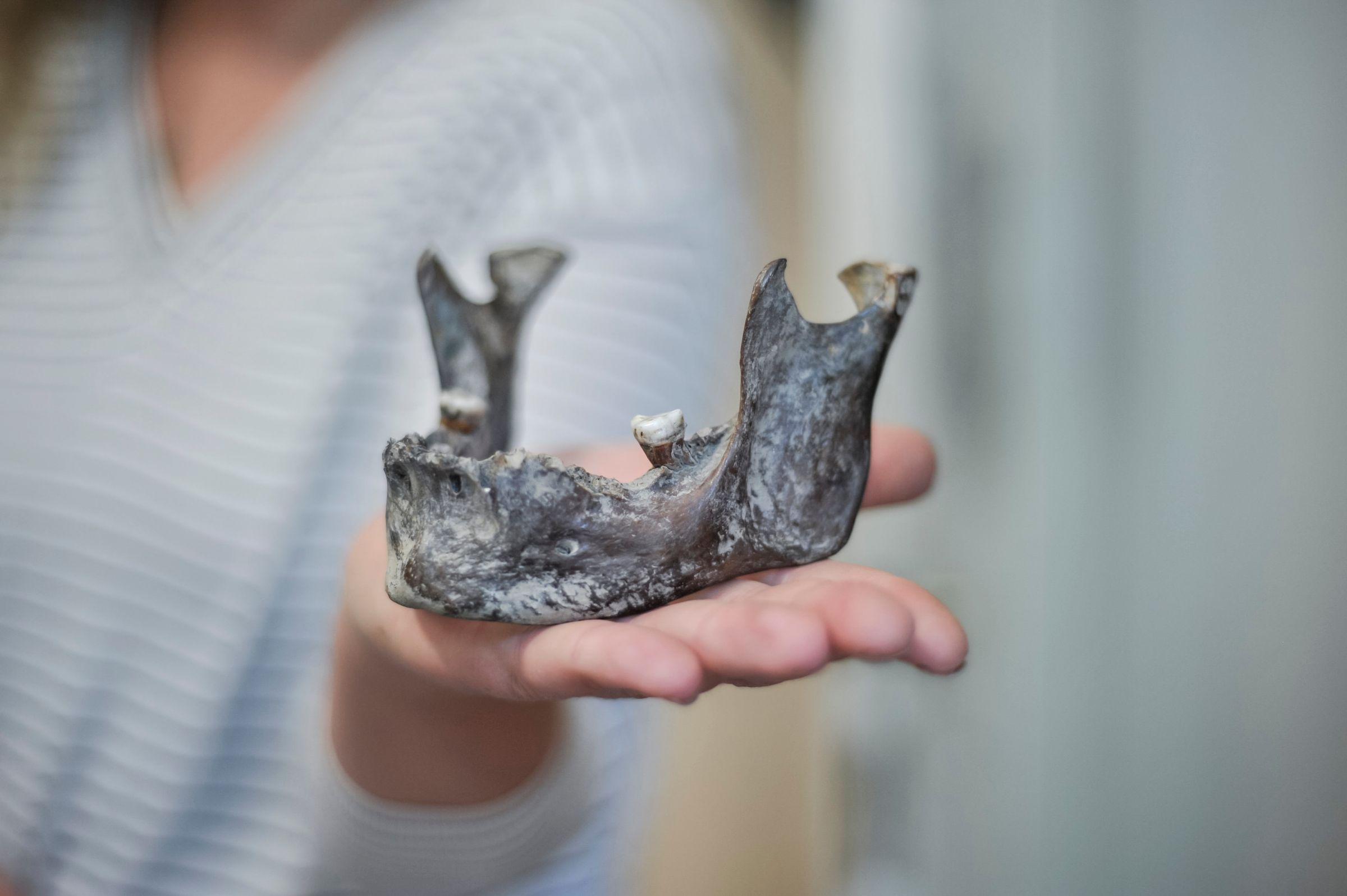
You’ve even found messages in bottles.
Yes, it must be almost 130 now, so that’s a fair amount of messages in bottles. Since Ancient Greek times people have been sending them. There’s a childlike excitement about not knowing who you’re going to connect with. Often people say goodbye to people with messages in bottles. I met a lady who put some of her sister’s ashes in a bottle and asked that whoever found them contact her. She wanted to set her sister’s spirit free in a bottle by sending her on a journey, because she had been about to go on a round-the-world trip and then she tragically died. I found them near Greenwich and her sister said, “That’s so typical; Claire loved London way too much, she just didn’t really want to leave.”
We’re so used to communication being instant and very definite.
That’s right. You don’t know if someone will find your message or when. It’s always special to find and connect with people who you wouldn’t otherwise have connected with. I think it was John Burns who said the Thames is liquid history. It is a giant liquid storybook, full of old stories and new stories. It’s not just the ancient history, it’s full of modern stories as well, especially in some of these messages in bottle.
Thinking of having a go? Nicola recommends guided walks on the foreshore with Thames Discovery. Would-be solo mudlarks should apply for a permit and check out the safety advice from the PLA on the same page.
